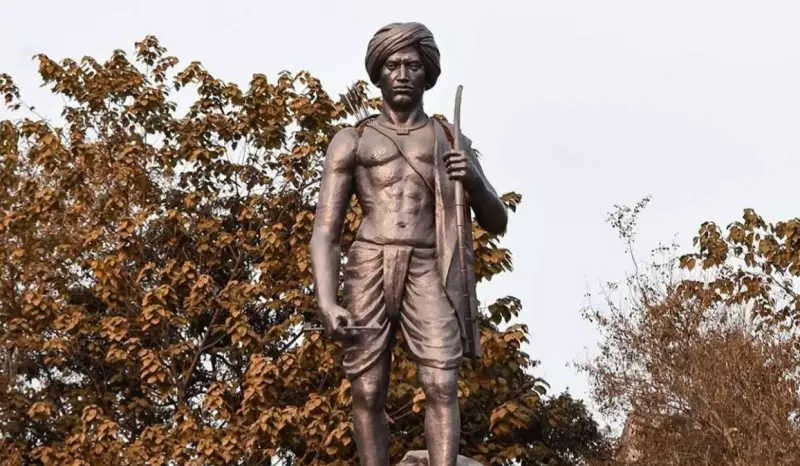
India commemorates the birth anniversary of Birsa Munda, the legendary tribal freedom fighter whose revolutionary spirit continues to inspire generations. Born on November 15, 1875, in Ulihatu village of present-day Jharkhand, Birsa Munda led one of the most significant tribal uprisings against British colonial rule.
The Ulgulan Movement: A Revolutionary Uprising
Birsa Munda's Ulgulan movement, meaning 'Great Tumult,' emerged as a powerful resistance against British oppression and exploitation of tribal communities. Between 1897 and 1900, this remarkable uprising challenged the colonial administration's unjust policies that threatened tribal land rights and cultural identity.
The movement gained momentum as Birsa Munda mobilized tribal communities across the Chotanagpur Plateau. His leadership united various tribal groups against the common enemies of British rule and the zamindari system that threatened their traditional way of life. The Ulgulan movement represented not just political resistance but a cultural renaissance for tribal communities.
Modern Tribal Movements and Forest Guardianship
Today, Birsa Munda's legacy lives on through numerous tribal movements fighting for forest rights and cultural preservation. The Forest Rights Act of 2006 stands as a testament to the ongoing struggle for tribal rights that Birsa Munda initiated over a century ago.
Contemporary tribal communities continue to serve as guardians of India's forests, maintaining ecological balance while preserving ancient traditions. Their role in environmental conservation has gained recognition at national and international levels, echoing Birsa Munda's vision of harmonious coexistence with nature.
Several modern tribal organizations draw inspiration from Birsa Munda's principles, advocating for land rights, cultural preservation, and political representation. These movements emphasize sustainable development while protecting tribal interests in rapidly changing economic landscapes.
National Recognition and Continuing Relevance
The Indian government has officially recognized Birsa Munda's contributions by declaring his birth anniversary as Janjatiya Gaurav Divas (Tribal Pride Day). This national recognition underscores the enduring significance of his struggle in contemporary India.
Educational institutions, cultural programs, and policy initiatives now incorporate Birsa Munda's teachings, ensuring that new generations understand the importance of tribal rights and environmental stewardship. His life story serves as an inspiration for youth across India, particularly in tribal communities seeking to preserve their heritage while embracing modern opportunities.
As India progresses, the principles championed by Birsa Munda remain crucial in shaping inclusive development policies that respect tribal rights and environmental sustainability. His vision continues to guide discussions around tribal welfare and forest conservation in 21st-century India.






